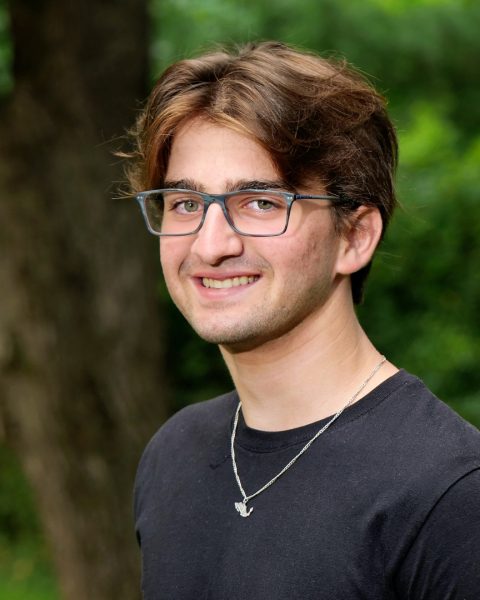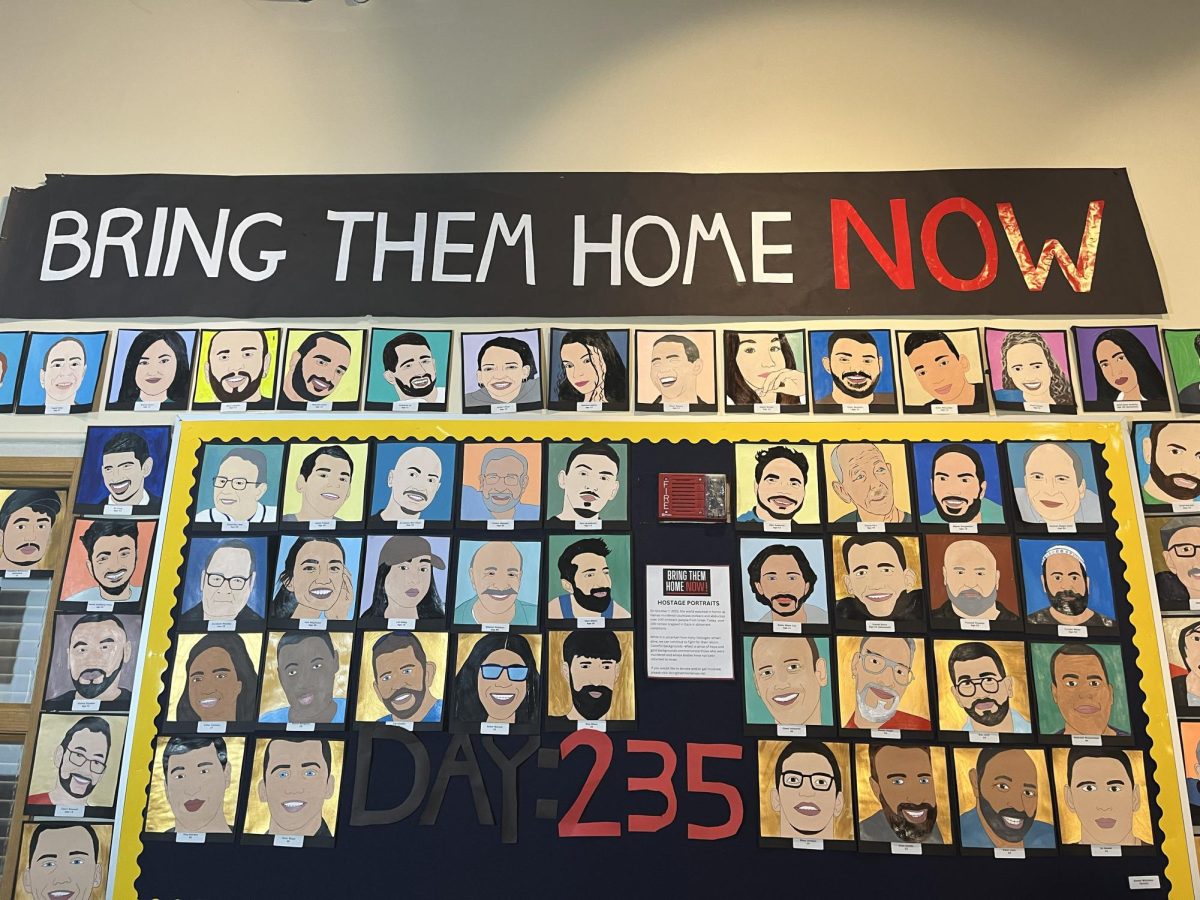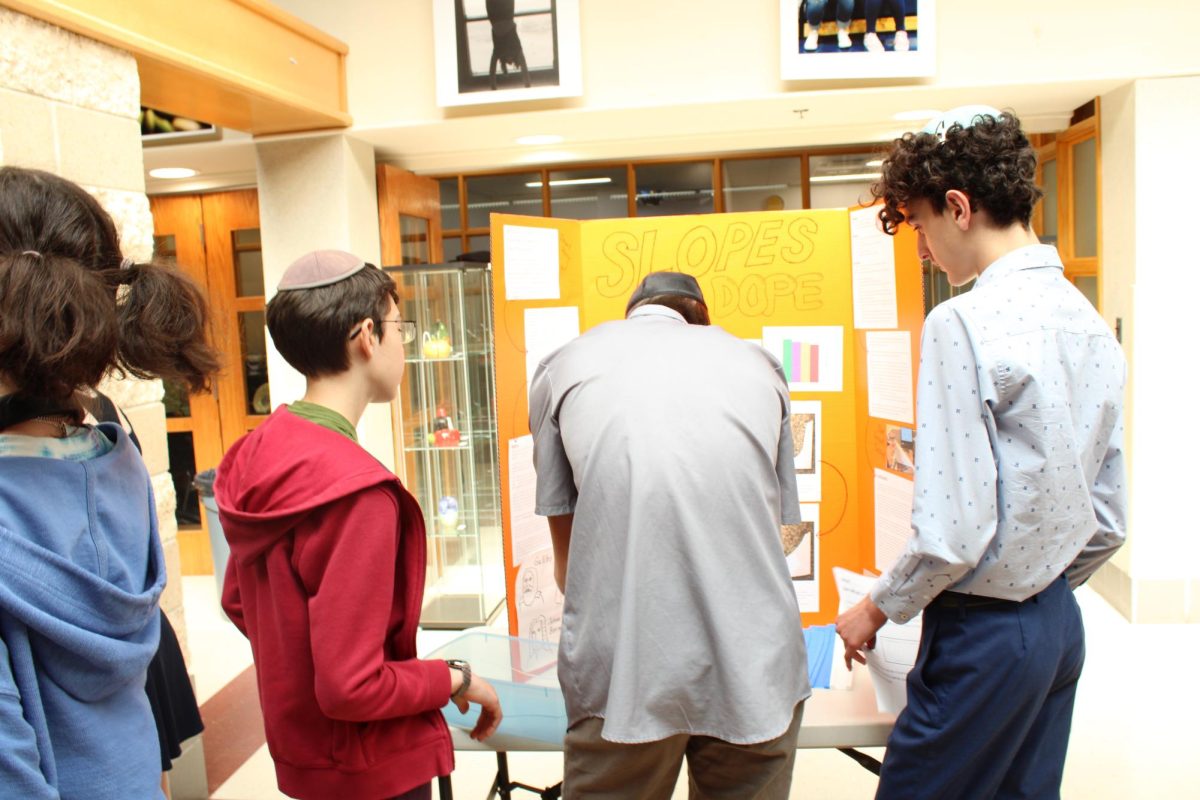Pro/Con: Should Jewish students attend universities facing antisemitism?

As antisemitism on college campuses skyrockets as a result of the Israel-Hamas war, high school seniors are left wondering whether they should apply to colleges host to harmful, antisemitic incidents. But if Jews do not attend such colleges, the antisemitism at these schools will only continue to worsen.
Antisemitism is one of the oldest forms of hatred and has progressed from distorted myths to genocidal extremes over the course of Jewish history. The Israel-Hamas War has revived archaic forms of antisemitism on college campuses and, quite plainly, has incited death threats, physical assaults, vandalism on campus buildings and more towards Jewish students at a range of universities across the country, some of which are Cornell University, the University of Pennsylvania and the University of California at Berkeley.
I recognize the common concern for Jewish student safety on campus since the antisemitism has reached dangerous degrees. However, I believe that such hatred should only increase Jewish attendance on campuses because their presence enables them to accordingly advocate against it. Jewish students own the freedom to vouch for the implementation of preventative and protective policies to college administration and should use that freedom to safeguard our communities.
Benjamin Weiss (‘23) is a freshman at Columbia University, and amid his first year, has rallied alongside fellow Jewish students against the antisemitism that has occurred on campus. Weiss believes that the on-campus hatred necessitates colleges to foster an environment where there is a diversity of ideology, which can only be achieved through a population of Jewish students.
“We [Jewish students] are not going to turn away from the people who hate us, who want to see us gone,” Weiss said. “We’re going to keep showing up. We’re going to keep being proud of who we are. We’re not going to let them make us fear or make us not attend universities out of fear.”
Meanwhile, at the University of Pennsylvania, following a congressional hearing on Dec. 5, President Liz Magill and Board of Trustees Chairman Scott Bok resigned four days later in response to the roaring backlash they received from Jewish student advocates and the general public due to antisemitism on the university’s campus. The university’s student population is roughly 16% Jewish, and this percentage, for all universities, should only rise in order to ensure that Jewish voices are being heard and are accounted for.
As has occurred since early Jewish history, the absence of Jewish students on college campuses will further ostracize Jews from mainstream society. Hillel International’s President and CEO Adam Lehman testified in front of the House Committee on Ways and Means on Nov. 15 in support of Jewish attendance at colleges all over the world and in hopes to strengthen campus security protections with Congress’s assistance.
“As we always have and always will, Hillel believes that one critical way to counter antisemitism is by building vibrant Jewish communities where Jewish students can express their Jewish identities fully… We remain steadfast in these commitments,” Lehman said.
Through such vile hatred on campuses, the culprits of antisemitism and its benefactors seek to steer Jews out of student populations. So why should Jewish college students satisfy the oppressors by vacating campuses? Alternatively, Jewish students must grow communities on campus in order to combat the parades of antisemitism that are flooding schools. The lack of Jewish representation at colleges will ostracize us as a religious group and narrow perspectives to exclude Jewish voices.
No student, regardless of their identity, should ever have to sacrifice their education for protection against discrimination. Jewish students should stand unwavering and fulfill their obligation to terminate antisemitism by continuing Jewish attendance on all college campuses.
As University of Maryland students walked to class in early November, many saw protests across campus. Many more walked over the words written in chalk on the sidewalk: “Holocaust 2.0.”
Across the U.S., antisemitism has risen 388% since the Oct. 7 attacks on Israel. That antisemitism has been seen everywhere, from Times Square to virtual meetings. In particular, the already-prominent antisemitism on college campuses has rapidly increased, leaving many high school students wondering if they should apply to colleges that have had antisemetic incidents.
Although it is important to acknowledge the “real world” preparation that antisemitism on campuses provides, it is crucial to recognize the significant detrimental effect that this form of hatred has on college students.
According to a poll by Hillel International, over half of Jewish college students feel scared and unsafe on campus since the Israel-Hamas war began on Oct. 7, and more than a third feel the need to hide their Jewish identity.
Jewish students should be able to attend college without feeling threatened because of their beliefs or who they are, and such colleges should not be supported by the Jewish community.
Additionally, Jewish students and donors should consider which causes and school boards they would like to support with their money. Israeli billionaire Idan Ofer and his wife, Batia, quit Harvard’s Kennedy School of Government executive board in protest of the university’s handling of and response to the terror attacks on Israel. In 2013, Idan and Batia funded a fellowship program for Israeli and Palestinian students to study at Harvard. Since their resignation, they have been removed from the list of executive board members.
Harvard has also been under fire for a lack of response to the joint statement released by Palestine solidarity groups stating that Israel was “entirely responsible for all unfolding violence,” referencing the attacks on Oct. 7.
Antisemitism on college campuses is unsafe to Jewish students, and in some cases, puts their physical well being at risk. At Columbia University, an Israeli student was assaulted with a stick after confronting someone who was ripping down flyers with pictures of Israelis kidnapped by Hamas.
As well as the physical risk that antisemitism presents to Jewish students, it can also greatly impact students’ mental health. According to a survey done by the Anti-Defamation League (ADL), 73% of Jewish students have witnessed or experienced antisemitism on campus in the 2023-24 school year alone, which causes fear within the Jewish community on campus.
In November, the Department of Education launched investigations into seven schools regarding alleged instances of antisemitism and Islamophobia. That number has since risen to over 60 schools, including Harvard University and Columbia University.
Students should consider what type of college communities they want to be a part of. Jewish students should not be expected to bear the hatred and hostility that so many campuses perpetrate. Instead, they should consider the antisemitism in any college’s culture and school board before applying.
















